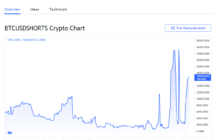As Bitcoin hits a trillion-dollar market cap for the first time ever, investors and enthusiasts alike are buzzing with excitement. To understand the implications of this milestone and how Bitcoin's security measures have played a crucial role in reaching this point, it's important to delve into the following three articles:
The Evolution of Bitcoin Security: From Proof of Work to Lightning Network
Bitcoin, the world's first decentralized digital currency, has come a long way since its inception in 2009. One of the key aspects that has evolved significantly over the years is the security measures surrounding Bitcoin transactions. From the early days of Proof of Work (PoW) to the more recent Lightning Network, Bitcoin security has seen major advancements.
Proof of Work was the original consensus mechanism used to secure the Bitcoin network. Miners would solve complex mathematical puzzles to validate transactions and add them to the blockchain. While PoW was effective in preventing double-spending and other attacks, it was also energy-intensive and slow. This led to the development of more efficient security measures, such as the Lightning Network.
The Lightning Network is a second-layer solution that enables faster and cheaper transactions on the Bitcoin network. By creating off-chain payment channels, users can securely exchange funds without having to wait for confirmations on the main blockchain. This not only increases the speed of transactions but also reduces fees and congestion on the network.
Over the years, Bitcoin security has continued to evolve, with new technologies and protocols being developed to address the challenges of scalability and privacy. As Bitcoin continues to gain mainstream adoption, it is crucial for security measures to keep pace with the growing demand for fast and secure transactions. The
How Institutional Investors are Driving Bitcoin's Surge in Value
In recent months, Bitcoin has experienced a significant surge in value, reaching new all-time highs. While there are several factors contributing to this impressive rally, one of the key drivers behind Bitcoin's surge is the growing interest from institutional investors.
Institutional investors, such as hedge funds, family offices, and pension funds, have been increasingly allocating a portion of their portfolios to Bitcoin and other cryptocurrencies. This influx of institutional capital has helped legitimize Bitcoin as a viable asset class and has significantly boosted its value.
One of the main reasons why institutional investors are flocking to Bitcoin is its potential for high returns. With traditional markets facing uncertainties and low interest rates, many institutional investors see Bitcoin as a lucrative investment opportunity that can provide diversification and strong returns in the long run.
Additionally, the increasing adoption of Bitcoin by well-known companies like Tesla and Square has further bolstered its credibility among institutional investors. These endorsements from corporate giants have helped reduce the stigma surrounding Bitcoin and have made it more appealing to mainstream investors.
Overall, the interest from institutional investors is playing a crucial role in driving Bitcoin's surge in value. Their participation in the market is adding liquidity, stability, and credibility to Bitcoin, ultimately propelling its price to new heights.
Analyzing the Impact of Regulatory Changes on Bitcoin's Market Cap
Bitcoin, the largest and most well-known cryptocurrency, has been subject to numerous regulatory changes over the years. These changes have had a significant impact on Bitcoin's market cap, which is a key indicator of the overall value of the cryptocurrency. Understanding how regulatory changes affect Bitcoin's market cap is crucial for investors, traders, and anyone else interested in the cryptocurrency market.
When regulatory changes are announced, they can have both positive and negative effects on Bitcoin's market cap. Positive changes, such as increased regulation and oversight, can help to legitimize Bitcoin and attract more investors. On the other hand, negative changes, such as bans or restrictions on Bitcoin trading, can cause the market cap to plummet.
One recent example of the impact of regulatory changes on Bitcoin's market cap is the crackdown on cryptocurrency exchanges in China. When Chinese regulators announced that they would be shutting down cryptocurrency exchanges in the country, Bitcoin's market cap took a hit. This serves as a reminder that regulatory changes can have a significant impact on the value of Bitcoin and other cryptocurrencies.
Overall, analyzing the impact of regulatory changes on Bitcoin's market cap is essential for understanding the dynamics of the cryptocurrency market. By staying informed about regulatory developments, investors can make more informed decisions about buying, selling, or holding Bitcoin. This article is



